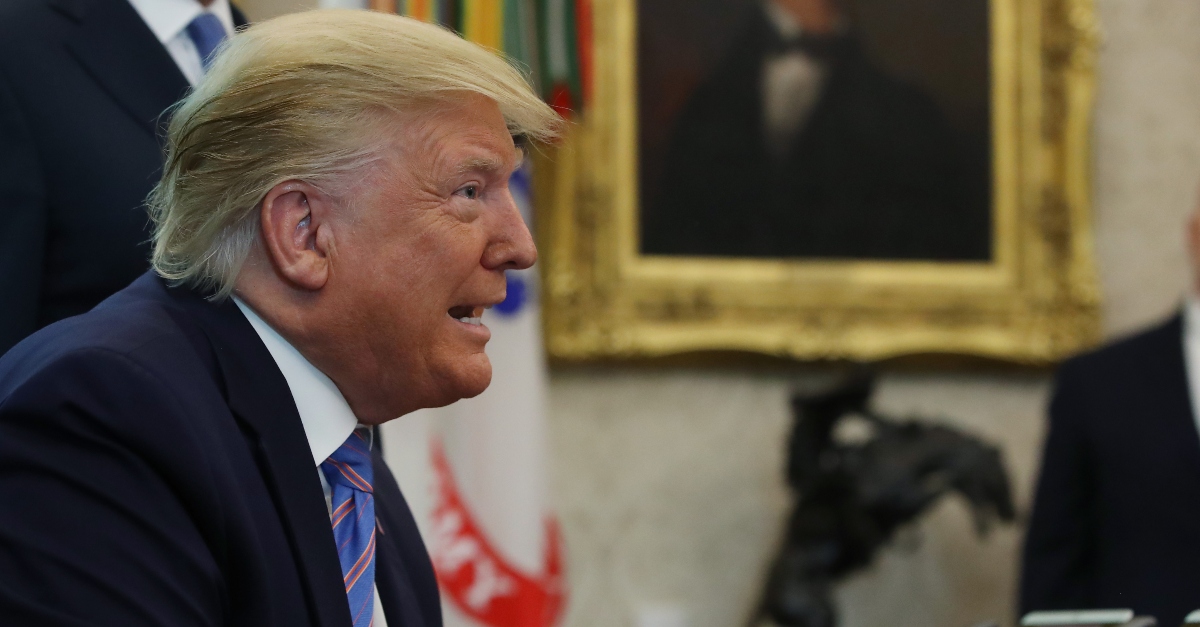
The Democratic governor of California signed a bill on Tuesday that would keep President Donald Trump off of the primary ballot in the state if he does not make public his tax returns. Although Gov. Gavin Newsom (D) said that the bill would apply to all presidential candidates and gubernatorial candidates, you can expect this bill to meet a challenge.
The bill would require all presidential and gubernatorial candidates to hand over tax returns to California’s secretary of state at least 98 days before the primary, after which point the records would be available for viewing online (with the exception of certain personal information).
Newsom claimed last week that, in essence, many people were saying the bill was “absolutely constitutional,” but the initial reaction from legal experts was not so optimistic.
Next up … anyone who wants to vote for Trump will be required to pay a poll tax or pass a literacy test 🤦♂️ https://t.co/1k420Xelfx
— Andy Grewal (@AndyGrewal) July 30, 2019
Rick Hasen, an election law expert and a Professor of Law and Political Science at UC Irvine, expects a “quick lawsuit.” Hasen was ahead of the curve on this, explaining in Politico back in 2017 that “It’s hard to predict how courts will rule, but given precedents on both sides of the issue, the argument for the tax return gambit is not a slam dunk.”
“The Supreme Court might, if faced with the issue, hold that state legislators cannot require tax returns of presidential candidates even given state legislatures’ much greater power over presidential elections,” he wrote at the time.
Hasen also predicted that “No doubt as soon as they are enacted, such laws would be challenged in court. Trump would already have standing to challenge, as he declared his candidacy for reelection in 2020 on the day he was inaugurated.”
Although there has been no confirmation from Team Trump that a lawsuit is on the horizon, that seems likely. Recent history suggests as much. In any event, Trump campaign official Tim Murtaugh already declared that the bill was not constitutional.
“The Constitution is clear on the qualifications for someone to serve as president and states cannot add additional requirements on their own,” he told Politico. “The bill also violates the First Amendment right of association since California can’t tell political parties which candidates their members can or cannot vote for in a primary election.”
Newsom, for his part, said the law should be the “national standard,” saying that the “extraordinary times” in which we live mean that “states have a legal and moral duty to do everything in their power to ensure leaders seeking the highest offices meet minimal standards, and to restore public confidence.”
As the Associated Press noted, Newsom’s predecessor, former California Gov. Jerry Brown (D), also questioned the constitutionality of a bill like this when vetoing one in 2017.
“While I recognize the political attractiveness – even the merits – of getting President Trump’s tax returns, I worry about the political perils of individual states seeking to regulate presidential elections in this manner,” Brown said at the time, warning of a slippery slope. “First, it may not be constitutional. Second, it sets a ‘slippery slope’ precedent. Today we require tax returns, but what would be next? Five years of health records? A certified birth certificate? High school report cards? And will these requirements vary depending on which political party is in power?”
[Image via a Mark Wilson/Getty Images]